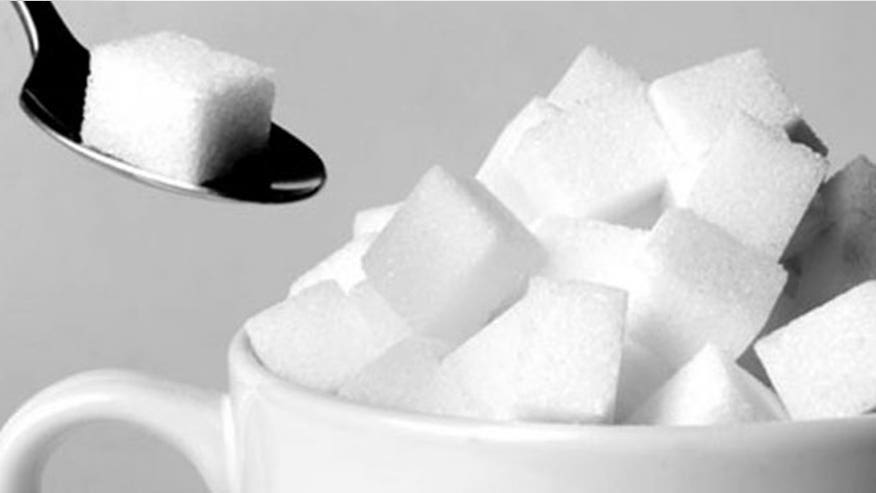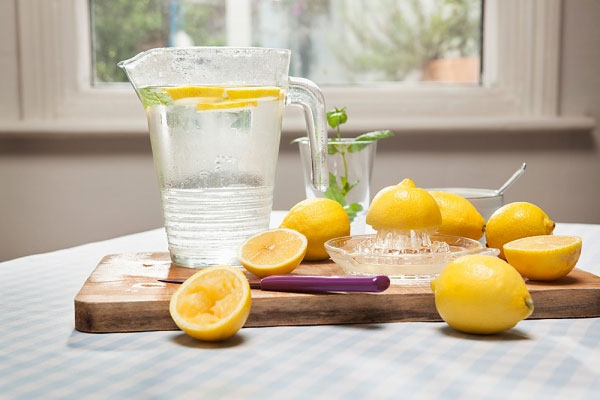 We all know nutrition provides our bodies with fuel for the day, but what we eat also affects how we power down at night.
We all know nutrition provides our bodies with fuel for the day, but what we eat also affects how we power down at night.
Research has found that certain nutrients in food can affect sleep, from how easy it is to fall asleep at a reasonable hour to the quality of rest we get throughout the night. See what you should munch on for better nights and what foods to skip.
Dietary Habits and Your Sleep
Have you ever caught yourself napping after a big meal or wishing you wouldn't have had that post-dinner coffee? What we consume and when can affect our sleep in a variety of ways.
One obvious avenue is by stimulating biological systems that keep us awake. Sugars, caffeine and other stimulants work on hormones and neurotransmitters to keep you wired. In the evening hours, they can delay your body's normal routine and keep you up hours later than usual.
Other foods like peppers, spices and even dairy can cause indigestion for some people. This can lead to discomfort when trying to fall asleep, and less restful sleep during the night.
It's common for people to eat their biggest meal for dinner, but large meals and snacks eaten in the evening, particularly those high in fat, can impair sleep quality, according to one Brazilian study. In contrast, another study found higher carbohydrate meals consumed in the evening may help improve sleep onset but are best consumed four hours before bedtime.
Though a big meal can make you feel drowsy, food takes energy and time to digest, and digestion can slightly elevate body temperature. Body temperature is important, as it appears that the body's natural drop in temperature during sleep plays an important role in deep sleep quality.
More recently, studies have found that too much or too little of specific nutrients and vitamins in the overall diet also relate to sleep quality.
Effects of Nutrition on Sleep Duration
University of Pennsylvania researchers conducted a large-scale study using data derived from a National Health and Nutrition Examination Survey. In the study, researchers sought to determine which dietary factors could be statistically correlated with self-reported sleep habits, finding several interesting connections.
Findings were grouped by sleep duration, with people sleeping under five hours classified as very short sleepers, five to six hours as short sleepers, seven to nine hours as normal sleepers, and longer than nine hours as long sleepers.
Nutritional factors that appeared to have the biggest impact on rest include: theobromine, vitamin C, water, lutein and zeaxanthin, dodecanoic acid, choline, lycopene, carbohydrates, selenium, and alcohol.
Very short sleepers showed less dietary variation, and they had the lowest total calorie intake, consumed less protein and carbohydrates, and were more likely to be on a low-sodium diet. Their diets were associated with lower intake of lycopene, thiamin, total folate, folic acid, phosphorus, iron, zinc, selenium and tap water.
Short sleepers had diets high in overall moisture (but less tap water) and lutein + zeaxanthin, but low in vitamin C and selenium.
Long sleepers showed less dietary variation and consumed less total calories and overall carbohydrates. They consumed less theobromine, dodecanoic acid, choline, selenium, lycopene and phosphorus, but more alcohol.
Normal sleepers consumed the widest variety of foods, drank more tap water, consumed the most theobromine, and consumed more dodecanoic acid.
Effects of Nutrition on Sleep Complaints
Other research based on the same data looked at dietary effects on reports of difficulty falling asleep, staying asleep, non-restorative sleep and daytime drowsiness.
Difficulty falling asleep was associated with fewer total calories, lower levels of alpha carotene, selenium, dodecanoic acid and calcium, and higher levels of hexadecanoic acid.
Difficulty staying asleep was associated with less varied diets, special diets and higher sodium use. This was also associated with diets low in carbohydrates, butanoic acid, dodecanoic acid, vitamin D, and lycopene, and high in hexanoic acid and overall moisture.
Non-restorative sleep was associated with diets low in calcium, vitamin C and plain water, and high in fat/cholesterol, butanoic acid, and moisture.
Daytime sleepiness was associated with special diets, high calorie diets, and diets high or low in fat/cholesterol. Also associated were diets low in potassium and plain water and high in overall moisture and theobromine.
What Can You Eat for Better Sleep?
While both studies used self-report data and looked at possible correlations rather than definitive causation, this information could be helpful when considering your own diet. Certain nutrients consistently stood out as beneficial for sleep, so incorporating more into your diet could be a smart move. The dietary sources of the nutrients below comes from the USDA Nutrient Database.
- Lycopene is an antioxidant primarily found in red fruits and vegetables. Top sources include guava, watermelon, cooked tomatoes and products with tomatoes, papaya, grapefruit, red peppers, red cabbage, asparagus and parsley.
- Theobromine is an alkaloid similar to caffeine. Top sources include cocoa powder, dark chocolate, guarana, and yerba mate tea.
- Folate, or vitamin B9, is essential for many bodily functions. Top sources include lentils, beans, asparagus, avocado, spinach, broccoli and other leafy green vegetables.
- Phosphorus is a mineral important for energy metabolism, cell repair and more. Top sources include pumpkin seeds, cheese, fish, shellfish, brazil nuts, lean meat, low fat dairy, tofu and lentils.
- Selenium is a mineral with antioxidant properties. Top sources include brazil nuts, fish, shrimp, turkey, chicken, beef, and whole grains.
- Vitamin C is important for renewing and repairing tissues, iron absorption and other functions. It's abundant in many fruits and vegetables, with top sources being bell peppers, guava, leafy greens, kiwi, berries, citrus fruits, tomatoes and peas.
- Vitamin D is necessary for absorbing other minerals, protecting bones, and it may even play a role in circadian rhythms. Direct sunlight is the best source of vitamin D, but it is also found in fatty fish, fortified dairy and grains, mushrooms, tofu and eggs.
- Butanoic acid is thought to contribute to a healthy colon. It's found in butter, cheese, and milk (particularly from goats and sheep).
- Dodecanoic acid is a saturated fat also known as auric acid, with possible good cholesterol benefits. Top sources include coconuts, coconut oil and palm kernel oil.
- Choline is important for the nervous system and liver health. Top sources include shrimp, eggs, fish, turkey, chicken, soy, and dark green vegetables.
- Alpha carotene is an antioxidant and vitamin A precursor. Top sources include pumpkin, carrots, orange peppers and chili powder, squash, tomatoes and sweet potatoes.
- Calcium is a mineral crucial for healthy bones and tissues. Top sources include dark leafy greens, milk, cheese, fish, fortified soy, okra, almonds, and black eyed peas.
- Potassium is an important mineral for cell function. Top sources include white beans, spinach, potatoes, apricots, squash, yogurt, salmon, avocados, mushrooms and bananas.
Other research supports links between tart cherry juice and kiwifruit, but a few commonly-touted sleep promoters like warm milk and turkey for tryptophan facelimited clinical support.
Things that may best consumed in moderation include hexadecanoic acid (found in palm oil, butter, cheese, milk, meat) and hexanoic acid (found in animal fat, butter, milk, cheese and coconut oil). Alcohol is also a sleep stealer. It can make you drowsy initially, but it impairs your sleep cycles later in the night.
Consistent habits of good sleepers include getting the right amount of calories, eating a balanced diet with enough carbohydrates and lean protein but keeping fats in moderation, drinking plenty of plain (preferably tap) water, and eating a wide variety of foods.
Ultimately, the greater variety of fresh fruits, vegetables, proteins and grains you eat, the better your chance of getting diverse minerals, vitamins and antioxidants that help promote overall health and good sleep.
Do you notice changes to your sleep depending on how you eat, or does the research match your experience? Share in the comments.

Featured Product: Sleep Eaze










